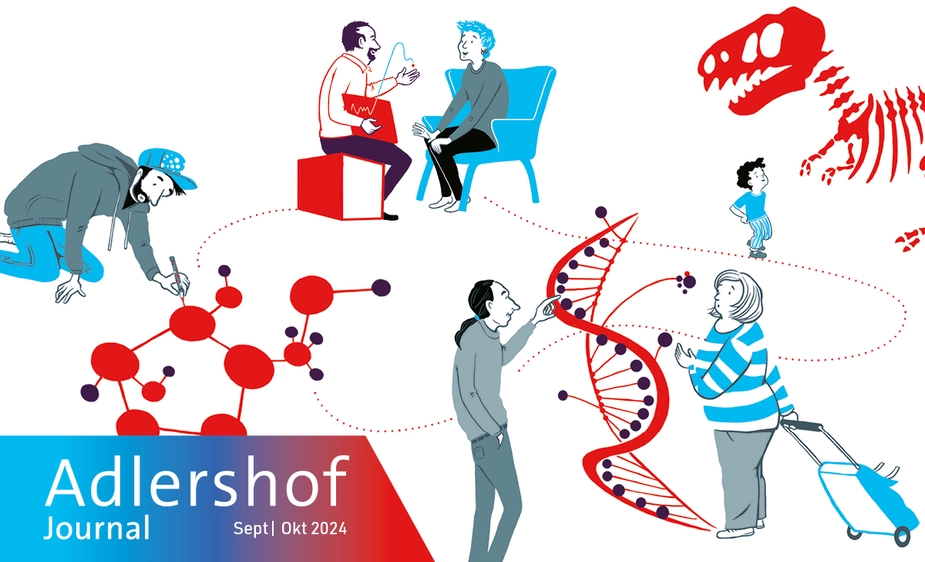Science brings people together
Essay by Christian Rauch, PhD physicist, science communicator, and new director of Berlin Science Week
In this era of great change in which disinformation and polarisation are increasingly shaping our society, science communication is becoming more and more important. However, science communication is also facing major challenges. Trust in science is declining, especially among groups with low levels of formal education. What can we do to encourage citizens to engage with scientific topics?
The informed public debate about science and research is an important pillar of a democratic society. Engaging with scientific insights helps us to better understand societal challenges, like climate change and health crises, and to contextualise possible solution strategies. It can foster understanding between different groups of society and facilitate dialogue. Last but not least, science strengthens trust in scientific institutions and their contributions to society and creates the foundation for major changes to be successful. However, many people feel overwhelmed by scientific topics or no longer see themselves reflected by them. In addition, the rapid spread of disinformation and false reporting is a mounting challenge for communicating genuine scientific findings. To tackle these challenges, we need to find new ways of reaching the broader public and inspiring enthusiasm for scientific topics. This would mean to create opportunities for genuine inclusion and give people a chance to contribute their perspectives and concerns.
The Berlin Science Week is a science festival that opens up an exciting experimental laboratory for new forms of science communication and carries science and research into the cultural sphere through a variety of event formats—from exhibitions to workshops, film screenings to panel discussions. Between 1 and 10 November every year, over 30,000 people visit more than 200 scientific events at over 80 venues in Berlin. In doing so, the festival not only appeals to those who are already interested in science but also draws in new audiences and piques their curiosity about scientific themes.
This year’s theme of Berlin Science Week, “Common Ground”, is a call to action. In a pivotal election year and faced with increasing concerns over disinformation and growing societal polarisation, we encourage all participants to critically examine their own beliefs and consider new viewpoints. We want to draw people’s attention to the important role of science and research as a bridge builder in our society. A special focus of the festival in 2024 is on improving opportunities for the independent arts and cultural scene to participate and on introducing new opportunities for participation for the visitors of the festival. In addition, the programme will be further enhanced by two designated festival centres at Berlin’s Natural History Museum and Holzmarkt 25. The latter will host an openly accessible “tiny gallery” in the outdoor area aimed at consciously addressing people outside of the academic bubble. Visitors are offered a multifaceted and rich festival experience.
Now in its ninth year, Berlin Science Week provides its visitors as well as the over 150 partner organisations involved to date—from research institutes to foundations to cultural organisations—with a lively platform for a dialogue about science and important issues of our time. By doing so, the festival makes a significant contribution to fostering debate about science among Berlin’s public and beyond, offering diverse opportunities and enabling the exploration of new science communication formats. Let us seize this opportunity and work together to strengthen the role of science as a unifying force in our society.
Christian Rauch is a PhD physicist, science communicator, and new director of Berlin Science Week
